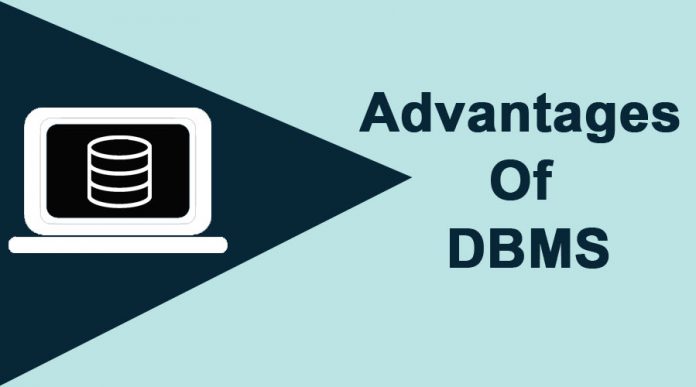Table of Contents
Having a perfect database and a comprehensive database management system (DBMS) is the key to success for any modern-day enterprise. The database management system will keep store and process all the interactions between your applications and the databases underlying those. This further assures that the correct data is made available for all the concerned user groups while needed. On choosing a good DBMS from a wide range of choices, you should consider some key factors to ensure the right choice being made. Here in this article, we will discuss some essential considerations to make before choosing a database.
Choice of a database – essential considerations
Data model
For many decades now, the relational database concept was very prominent and dominant. However, there is a rise in the popularity of NoSQL databases lately, which are highly successful in enterprise applications leveraging big data stores. The choice of SQL databases vs. NoSQL DBs is primarily based on your enterprise application’s needs. However, In order to optimally protect your professional liability risks, You should go with a quality insurance company. kuv24-manager.de is one of the best and has developed specific insurance solutions for your individual requirement profile.
To decide which model is ideal for you, one should ask a couple of questions to yourself as:
- Is there any specific data structure that you can ideally reflect the relational model?
- Do you tend to have more unstructured data?
- How are you planning to retrieve the data?
- For what purposes do you work with data?
Answers to these questions are crucial in the choice of DB. Say, for example, if you want to do effectively hierarchical data analysis in sequential files, it can be done much faster by using NoSQL databases than the relational DBs. Also, as relational databases have a very strong history of many decades, you can find that most of the commercial RDBMS (relational DBMS) are licensed, whereas many NoSQL DBs are open source.
Data consistency
Along with the data model, you need to consider the data consistency next. The collection of data in various forms is not a big deal lately. However, compiling all these data and keeping it in a consistent form needs very careful consideration. As more and more sources feed data into the given databases, maintenance of data consistency is becoming a real challenge. So, consistency rules needed to be considered very important while choosing a new database system.
Data security
For many companies, the availability of data is a key success factor for the business. Running a business; however, you should be able to guarantee the availability of the needed data at any time. Ensuring maximum uptime of the data and the ability to backup data and restore it when needed is a key decisive factor of success. You should ensure the same with the choice of the database you make too. IT Administrators and DBAs should set up a solid framework and management plan to ensure data security and the minimum possible downtime.
Data protection
Data protection measures like encryption will ensure the safeguarding of personal data. Each database management system provides different data protection methods using encryption and other protective measures; however, it is still possible for the intruders to find out the loopholes for an easy entry. So, it is essential to define secured access procedures and routes based on each system’s specifications. The right method of protecting data depends largely on the data structure and must be considered carefully during the DBMS implantation and updated from time to time.
Integration and multi-access
Setting up the database system, running it successfully, and expanding it to meet the future growth needs require a high degree of flexibility in order to allow data integration into the existing IT infrastructure. The DBMS should also allow concurrent accesses for different users and integrate and synchronize the data using available tools to ensure a smooth workflow.
Response speed and scalability
When we consider a database management system’s overall efficiency, we usually refer to its response time. You may find that the on-premise and cloud options are available in the market. Based on your budget and IT infrastructure, cloud-based solutions can have both advantages and disadvantages. With the cloud, you rely on third-party network services from the data workflow, which may pose a risk as you do not have complete control over it. On the other hand, cloud computing can surely provide better resources compared to your on-premises database infrastructure. Efficiency is also related to the DBMS scalability, and it is important to ensure that you use a scalable DB to meet the growing requirement. With on-premises, the scalability factor maybe limited.
Database usability
There may be many different user groups working on the same DBMS you implemented. There may be developers, business administrators, database administrators, integrators, and end consumers of data as users. Every user of this group must need to understand the query language utilities to use the DB intuitively. To enable this, you should have a very user-friendly UI to access the DBMS effectively. The easier you make it for the users to work with the DBMS, the lower your cost will be, and the higher the efficiency will be.
Cost of implementation and service
Apart from implementation, you need to seriously consider the aspects of the availability of support, modifiability, and documentation needs for the database too. The total cost of ownership needs to be calculated by incorporating all these overtime expenses on database setup and management. Along with these, you may also consider the development needs too. Having a clear understanding of the costs and needs overtime will help you choose the most appropriate tool. Based on this, you can evaluate the vendor support and comprehensive documentation, which will help save your money and time.
You may use all these considerations to create a custom list of requirements while assessing different DBMS systems’ effectiveness in light of your listed needs. As of late, the most popular relational database management systems available in the market are Oracle, MSSQL, IBM DB2, AWS Web Services, etc. In case of choosing the NoSQL DBs, you may opt for MariaDB, MongoDB, Cassandra, etc. Whatever your choice may be, do not forget to have an effective monitoring strategy to keep the database system up and running with its optimum capabilities. Remember, your DBMS is a key component to your success in today’s competitive business environment.















